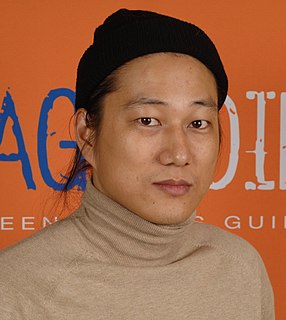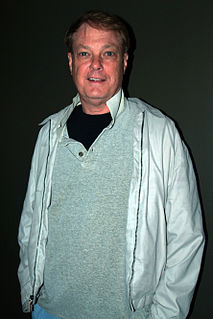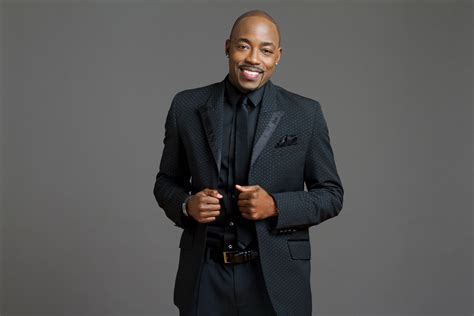A Quote by Jim Jarmusch
Sometimes I make films about scenes other filmmakers would leave out, so I just make the film out of all the things they wouldn't put in. Poetry allows you to do this more than prose, for example.
Related Quotes
The idea is to make the script out of a political analysis and then to convey that - sometimes in poetry, sometimes science, sometimes all it takes is a film. The film itself is less and less spectacular because I think very strongly now the more spectacular you are, the more you are absorbed by the things you are trying to destroy.
I'm a poetry-skipper myself. I don't like to boast, but I have probably skipped more poetry than any other person of my age and weight in this country - make it any other two persons. This doesn't mean that I hate poetry. I don't feel that strongly about it. It only means that those who wish to communicate with me by means of the written word must do so in prose.
Poetry has an indirect way of hinting at things. Poetry is feminine. Prose is masculine. Prose, the very structure of it, is logical; poetry is basically illogical. Prose has to be clear-cut; poetry has to be vague - that's its beauty, its quality. Prose simply says what it says; poetry says many things. Prose is needed in the day-to-day world, in the marketplace. But whenever something of the heart has to be said, prose is always found inadequate - one has to fall back to poetry.
In general, I would think that at present prose writers are much in advance of the poets. In the old days, I read more poetry than prose, but now it is in prose where you find things being put together well, where there is great ambition, and equal talent. Poets have gotten so careless, it is a disgrace. You can’t pick up a page. All the words slide off.
When filmmakers are kept from making films, there's a lot of different reasons why. Sometimes you work on a film and cast it and do all the work and can be just a month away from shooting, and all of a sudden, the whole thing goes up in smoke. But I do think the advent of a digital revolution is going to provide people with opportunities to make films that they never would have had before. I think you can do some pretty credible stuff now with very, very little money. Which I think is great for young filmmakers.
The Divine Comedy is a political poem and when you say poetry is not about - he's always quoted out of context, that "poetry makes nothing happen," that doesn't mean you shrug your shoulders and don't try to make anything happen. And Dante felt that poetry was engaged, there was a point of view; it's not my point of view, it's orthodox medieval Christianity, and I have my troubles with that. He didn't feel that you could just rule out so important a section of life - we care about these things, and it's out of caring about them that we write poetry.
Even before the economic crisis in Greece there was no structure for making films - no proper industry, and the structure didn't help filmmakers at all. So filmmakers had to help each other, and make very, very low-budget films. Now with the crisis, things got a bit worse, but filmmakers are still going to be making films. It didn't change that much.
The movie studios, they only like to make - I make a joke, but it's true - if the movie has the word "man" and a number in the title, they'll make it. If it doesn't have that, it's an R-rated raunchy comedy, and that's it. Any other movie that you're going to make is going to be an independent one. So for filmmakers who want to do something other than "man" and a number, it's either independent films or television, which is like the place for real creative filmmakers to go.
Certainly for me prose has a dilatory capacity, insofar as I don't trust my abilities in prose. I imagine I could have done the same thing in poetry, but sometimes I feel more fluent in poetry than in prose, and as a consequence perhaps I might pass too quickly by a thing that I might, in prose, have struggled merely to articulate. That struggle creates space, and it seems to me a particular kind of space into which memory flows easily. I suspect I think better in poetry, however.
The trouble is that when you read criticisms about the other films that I've made you get the impression that they're all about themes, or problems, or ideas. But those are actually things that develop out of characters, out of images and out of other things. These more abstract things develop while working on the material, and out of it. It's not a theoretical exercise from the outset.





































